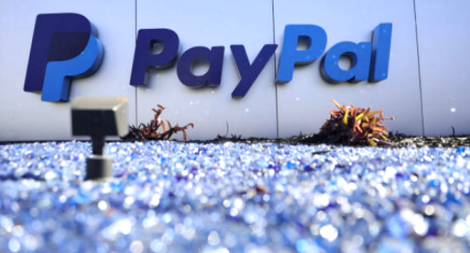Accredited InvestorsAltcoinAnatoli UnitskyAnti-Money Laundering (AML) In CryptoAPIArbitrageArtCoin TokenArticle DirectoryASICAuction Terminology GlossaryBasics of Stock Market InvestingBear MarketBest Crypto Payment Provider In the WorldBitcoinBlockchainBlockchain ConfirmationBlockchain Consensus MechanismBlockchain ForkBlockchain GlossaryBored Ape Yacht ClubBuild a Business That OutperformsBull MarketBuying SkyWay SharesByzantine Fault Tolerance (BFT) ExplainedCasascius CoinCentral Bank Digital Currency (CBDC)Centralized Crypto ExchangeCoinCoinsetCold WalletCollateralCommodity Futures Trading Commission (CFTC)Cross-Chain TechnologyCRUCrypto ExchangeCrypto GlossaryCrypto JokesCrypto Terms to KnowCrypto TickerCryptocurrencyCryptographyCryptojackingCryptounit BlockchainCryptounit GlossaryCryptounit ProgramdApp (Decentralized Application)Dead CoinDecentralized Exchange (DEX)Decentralized Finance (DeFi)Difference Between Bitcoin and EthereumDifferent Ways of Investing MoneyDigital CurrencyDistributed LedgerDo Your Own Research (DYOR)Dollar Cost Averaging (DCA)Dow Jones Industrial Average (DJIA)EncryptionERC-20ERC-721EthereumEvoScentFear Of Missing Out (FOMO)Fear, Uncertainty and Doubt (FUD)Fiat MoneyFNT Fintech CompanyGenesis BlockGlobal Unit PayGlossary of Banking TermsGlossary of Business TermsGlossary of Financial TermsHalvingHODLHot WalletHow Do I Start InvestingHow Rich is Satoshi Nakamoto?How to Create a BlockchainHow to Find Private InvestorsHow to Get Into FintechHow to Program Smart ContractsI Am Thrilled to Be a Part of This Global ProjectInitial Coin Offering (ICO)Initial Public Offering (IPO)Initial Token Offering (ITO)Innovation Basalt TechnologyInnovative Transportation TechnologiesInternational Bank Account Number (IBAN)Investing in Gold Mining StocksInvesting in Gold MiningJagerJoy of Missing Out (JOMO)Know Your Customer (KYC)LedgerLiquidity in CryptocurrencyMaker and Taker Fees in Crypto TradingMarket Capitalization (Market Cap)Meme CoinMetal Credit CardMetaMaskMillenials Now Have Access to Generational WealthMy Best Investment EverNew Digital EvolutionNFT GlossaryOff-Chain TransactionsOn-Chain TransactionsOpen Edition NFTPeer-to-Peer (P2P)Personal Loan GlossaryProbably the Best STO on the MarketProof of Stake (PoS)Real Estate Glossary of TermsReal Estate Investing GlossaryRebase TokenSecurities and Exchange Commission (SEC)Security Token ExchangesSecurity Token Offering (STO)Soulbound Decentralized Identities for Security TokensSoulbound ID Launch by Stobox Proves a SuccessSoulbound TokensStoboxStock Market GlossaryTestimonialsTether Platform and Token (USDT)UnitEx ExchangeUnitsky String TechnologiesUNTBUSDUValidatorWe Started Investing When We Were 25What are Blue Chip NFT?What are Blue Chip Stocks?What are Crypto Assets?What are Crypto Smart Contracts?What are CryptoPunks NFT?What are Digital Assets?What are Digital Collectibles?What are Gas Fees?What are Gas Wars?What are Hashmasks?What are Non Fungible Tokens?What are Non-Sufficient Funds (NSF)?What are Soulbound Tokens (SBT)?What are Stablecoins in Crypto?What are Transactions Per Second (TPS)?What are Utility NFTs?What are Utility Tokens?What Does Burning Crypto Mean?What Does Diamond Hands Mean?What Does Paper Hands Mean?What Does To The Moon Mean?What Does WAGMI Mean?What Happened to Satoshi Nakamoto?What is a 51% Attack?What is a Baby Boomer?What is a Backlink?What is a Banner?What is a Barcode?What is a Bid-Ask Spread in Crypto?What is a Block in Blockchain?What is a Block Reward?What is a Blockchain Address?What is a Blockchain Node?What is a Blockchain Oracle?What is a Blog?What is a Bond?What is a Bot?What is a Broker?What is a Business Accelerator?What is a Cash Cow?What is a Commercial Bank?What is a Commodity?What is a Con?What is a Credit?What is a Credit Limit?What is a Credit Rating?What is a Crypto Airdrop?What is a Crypto Bridge?What is a Crypto Scam?What is a Crypto Token?What is a Crypto Wallet?What is a Crypto Whale?What is a Crypto Winter?What is a Cryptocurrency Public Ledger?What is a Cryptocurrency Roadmap?What is a DAO?What is a Dark Pool?What is a Day Trader?What is a Dead Cat Bounce?What is a Default?What is a Derivative?What is a Digital Credit Card?What is a Fiscal Quarter?What is a Fungible Token?What is a Governance Token?What is a Grace Period?What is a Hard Fork?What is a Hot Wallet?What is a Hybrid Blockchain?What is a Hybrid PoW/PoS?What is a Joint Account?What is a Market Cap?What is a Merkle Tree in Blockchain?What is a Mining Farm?What is a Nonce? What is a PFP NFT?What is a POS System?What is a Prepaid Card?What is a Private Blockchain?What is a Private Key?What is a Public Blockchain?What is a Public Key?What is a Reserve Currency?What is a Ring Signature?What is a Routing Number?What is a Rug Pull in Crypto?What is a Safe Deposit Box?What is a Satoshi?What is a Security Token?What is a Seed Phrase?What is a Shitcoin?What is a Sidechain?What is a Soft Fork?What is a Spot Market?What is a State Bank?What is a SWIFT Code?What is a Tax Identification Number (TIN)?What is a Time Deposit?What is a Transaction Account?What is a Variable Interest Rate?What is a Virtual Assistant (VA)?What is a Virtual Card?What is a Virtual Currency?What is a Visa Card?What is a Whitelist in Crypto?What is a Whitepaper?What is Accounts Payable (AP)?What is AMA in Crypto?What is Amortization?What is an Accrual?What is an ACH Transfer?What is an Actuary?What is an Addendum?What is an Algorithm?What is an Angel Investor?What is an Annuity?What is an Asset?What is an ATM?What is an Atomic Swap?What is an Audit?What is an Avatar?What is an EIN?What is an Embargo?What is an Entrepreneur?What is an IDO (Initial Dex Offering)?What is an Interest Rate?What is an Internet cookie?What is an Investment Bank?What is an NFT Drop?What is an NFT Floor Price?What is an Ommer Block?What is an Orphan Block?What is an Outstanding Check?What is an Overdraft?What is Artificial Intelligence (AI)?What is B2B (Business-to-Business)?What is B2G (Business-to-Government)?What is Bartering?What is Bitcoin Dominance?What is Bitcoin Pizza Day?What is Blockchain Immutability?What is Blockchain Used For?What is BRICS?What is Business-to-Consumer (B2C)?What is C2C (Customer to Customer)?What is Capitalism?What is Catfishing?What is CFD Trading?What is Check Kiting?What is Cloud Mining?What is Communism?What is Content Marketing?What is Decentralization in Blockchain?What is DeFi in Crypto?What is Delisting?What is Depreciation?What is Digital Marketing?What is Diversification?What is Double Spending?What is Dumb Money?What is Dumping?What is Earnings Per Share (EPS)?What is Economics?What is Email Marketing?What is Equity?What is Etherscan?What is Fintech?What is Foreign currency?What is Forex?What is Fundamental Analysis (FA)?What is GameFi?What is Generative Art NFT?What is Gwei?What is Hard Currency?What is Hash Rate?What is Hashing in Blockchain?What is Inflation?What is Initial Game Offering (IGO)?What is Interest?What is Interest Income?What is Mainnet?What is Mastercard?What is Metaverse in Crypto?What is Mining in Cryptocurrency?What is Minting NFT?What is Mobile Banking?What is Money Laundering?What is NFT Alpha?What is NFT Metadata?What is NFT Rarity?What is NGMI Meaning?What is Nominal Interest Rate?What is Online Banking?What is Open-End Credit?What is OpenSea NFT Marketplace?What is Personal Identification Number (PIN)?What is Play-to-Earn?What is Polygon?What is Proof of Authority (PoA)?What is Proof of Work (PoW)?What is Public Key Cryptography?What is Pump and Dump?What is Quantum Computing?What is Refinancing?What is Retail Banking?What is Ripple?What is Sharding?What is Slippage in Crypto?What is Smart Money?What is Solvency?What is Soulbound ID?What is SSL?What is Staking in Cryptocurrency?What is Technical Analysis (TA)?What is Testnet?What is the Ask Price?What is the Better Business Bureau (BBB)?What is the Bid Price?What is the Dark Web?What is the InterPlanetary File System (IPFS)?What is the Gold Standard?What is the Lightning Network?What is the Prime Rate?What is the Sandbox?What is the Secondary Market?What is the World Bank?What is Tier 1 Capital?What is Tokenomics?What is TRC-20?What is Universal Banking?What is Unspent Transaction Output (UTXO)?What is Usury?What is Volatility in Crypto?What is Wash Trading?What is Web3?What is Whisper?What is XRP?What is Zero-Knowledge Proof (ZKP)?Who is Beeple?Who is Satoshi Nakamoto?Who is Vitalik Buterin?Why Tokenization is a Safe HavenWhy You Should Try Your Hand at Trading
What is Fintech?
- Home
- Cryptounit Glossary
- What is Fintech?
In recent years, the Fintech industry has experienced remarkable growth, largely due to the significant contribution of crypto transactions.

One particular area where cryptocurrencies can prove beneficial is in providing financial and fintech services to individuals who possess smartphones but lack access to traditional bank accounts.
What is Fintech?
Fintech, a fusion of "financial" and "technology," pertains to businesses that utilize technology to improve or automate financial services and procedures. This term covers a swiftly expanding industry that benefits both consumers and businesses in various ways. Fintech has a broad range of applications, from mobile banking and insurance to cryptocurrency and investment apps. Currently, the fintech industry is vast, and if we consider the recent high levels of venture capital investments in fintech startups as a vote of confidence, it is likely to continue expanding for years to come.
One significant driver of this growth is that many traditional banks are embracing and integrating innovative fintech solutions, either through investing in, acquiring, or collaborating with fintech startups. These strategies enable established banking institutions to offer what digitally-savvy customers want, while simultaneously propelling the industry forward and remaining relevant.
How Does Fintech Work?
Financial technology products and services operate through a variety of mechanisms. Some of the latest advancements leverage machine learning algorithms, blockchain technology, and data science to execute tasks ranging from credit risk assessment to hedge fund management. Additionally, there is an entire subset of regulatory technology known as regtech, which aids in navigating the complex realm of compliance and regulatory issues in industries such as fintech.
As the fintech industry has expanded, so too have concerns about cybersecurity. The massive growth of fintech companies and marketplaces on a global scale has led to an increased exposure of vulnerabilities in fintech infrastructure, making it a target for cybercriminal attacks. Fortunately, technology continues to progress, and new measures are being developed to minimize existing fraud risks and address emerging threats.
Crypto in Fintech
The use of blockchain technology has grown significantly in recent years, but there are still misconceptions about its purpose. Blockchain is essentially a set of code that records events, with each record being unalterable. This technology has many applications, ranging from storage space to a ledger of peer-to-peer cryptographic transactions that do not require the involvement of a financial institution as a middleman. In the fintech industry, blockchain is a crucial driver of efficiency and effectiveness, which is largely reliant on computations and analysis.
Thanks to the tremendous advancement of information technology, the fintech revolution is raging as customers worldwide increasingly choose blockchain-powered cryptocurrency transactions to streamline their payment and transaction procedures. Cryptocurrencies are quickly becoming an essential component of the financial ecosystem, especially for countries lacking a stable currency.
However, relying too heavily on its value rather than fiat money may prove problematic. While numerous countries have banned or restricted the use of cryptocurrencies, broad acceptance of crypto might render traditional banks obsolete and even create a loss of faith in the concerned country’s paper currency. Despite these challenges, cryptocurrencies provide significant value to fintech institutions.
Another area where cryptocurrencies can help people gain access to financial and fintech services is among those who own smartphones but do not have bank accounts. This ‘unbanked’ category numbers around 1 billion people, providing a massive opportunity for crypto-powered fintech services to bring out products and services that were previously unavailable to these customers.
Cryptocurrencies are based on a distributed ledger, making them faster and more efficient than traditional currencies. The elimination of intermediaries cuts the cost of transactions substantially, making them a more enticing option for customers. Fintech companies can leverage this advantage to provide convenient, fast, and transparent transactions that meet their customers' needs.
While fintechs are market disruptors, they still face challenges, such as identity theft, fraud, and money laundering. Dealing with these issues requires significant time and resources. However, because cryptocurrencies are designed on decentralized ledgers, it is easier to check transaction records and prevent fraudulent activities. Blockchain technology is extremely secure, making it an attractive option for fintech companies to innovate and provide customers with various tempting alternatives to traditional banking products and services.
Related Articles

Stobox
Stobox offers a set of technology tools as well as industry and legal expertise in the fields of fintech and digital securities.

How to Get Into Fintech
If you really want to make it rain, you should take a close look at Fintech. This booming industry is where all the money is at, and with the right...

Best Crypto Payment Provider In the World
Global Unit Pay is pursuing its own fintech license to expand its offerings and provide basic crypto banking services to its clients and...

FNT Fintech Company
FNT is a cutting-edge fintech company with exceptional expertise in the cryptocurrency market. As the B2C extension of their partner, Global Unit Pay, a Swiss Neo bank that has been...
- Home
- Cryptounit Glossary
- What is Fintech?